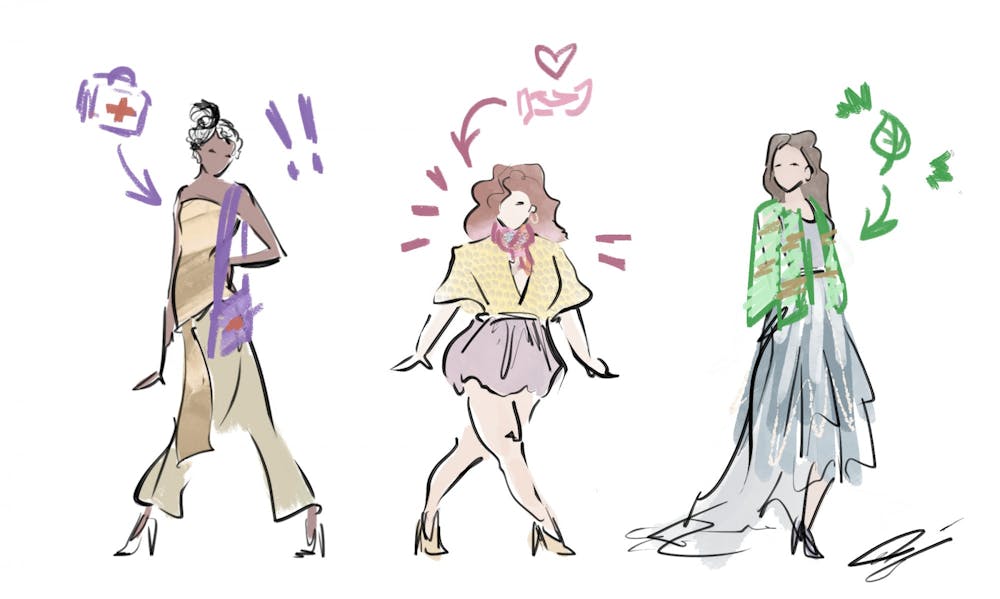In the current era of social activism, a brand's stance on social and political issues is more important than ever. Gone are the days where sketchy labor practices and ill–sourced materials are accepted without a second thought. More and more consumers are questioning the ethics of fast fashion, the implications of racist advertisements, and the problematic histories of established brands. Now, businesses are publicly pressured to put more effort into the core values they uphold and social causes that they endorse.
Studies have shown that an estimated 70% of consumers want a brand to take a stance on social and political issues. This sentiment is increasingly present in younger generations, who often prioritize the values of a brand over low prices.
Huge multinational corporations like Coca–Cola and industry juggernauts like Ralph Lauren have the power to create impactful social and political change, and fashion brands in particular have begun partnering with nonprofits to support underrepresented groups. However, their partnerships may be more performative than helpful.
The classic structure of these collaborations is creating purposeful pieces like clothes, purses, and shoes that tout the quality of brand as well as the social impact of supporting a certain cause. For instance, Hermès, a luxury fashion brand, collaborated with Coded by Kids to create a silk scarf. The piece, a scarf touting bold bursts of tangerine and tasteful notes of sky blue brought together by a flying pegasus, follows a long line of intricate and timeless Hermès scarves. However, the details of the Hermès and Coded by Kids collaboration leaves much to be desired.
The issue is that the consumer has no details about the partnership and how Coded by Kids will be benefited, if at all—there's no mention of the profit split between Hermès and Coded by Kids on the Hermès website. Instead, Hermès relies on consumers buying the scarf guilt–free, aided by pre–existing trust in the Hermès brand, and assuming that it vaguely supports a good cause.
Unfortunately, boosting name recognition isn’t enough to create meaningful benefit to already established nonprofit organizations. The real impact comes after consumers buy the product—when brands like Hermès should be transparently donating a sizable portion of its profit to their nonprofit partners.
The Hermès collaboration points to a greater issue with fashion brands partnering with nonprofits and other organizations: unfair profit splits. While it’s understandable that this can be difficult to navigate when the company is taking charge of production, arrangements where large pre–established fashion brands get to use a nonprofit or social cause as an accessory to sell merchandise are unacceptable. These collaborations only serve as shameless business ploys to capitalize on the plights of others and convince consumers to buy into feel–good campaigns.
When done right, purposeful fashion can be festive and effective. For example, the Spice Girls launched a simple but fun Pride 2021 T–shirt and black pouch featuring a play on the lyrics of the Spice Girls hit song “Wannabe.” Victoria Beckham also made it clear in the online ordering process that 100% of the profits generated from the T–shirt will go to AKT (formerly known as the Albert Kennedy Trust), a charity that combats LGBTQ+ youth homelessness.
The Spice Girls and AKT collaboration is an example of fashion brands effectively taking a stance without losing focus on who is actually being helped or co–opting the image of supporting a good cause for financial gain. Beckham and the Spice Girls' transparency and advocacy shows the core principle that should guide these collaborations: They want to support LGBTQ+ youth in a genuinely caring, non–performative way. When mixing business and social values, brands need to advocate for the values they claim to uphold through measurable action. If not, it’s easy to fall into the trap of prioritizing profits over the greater good.
Since transparency amid collaborations is sometimes lacking, consumers have to pay attention to what they buy and why they buy it. Purchasing from a dubious collaboration doesn’t necessarily mean you’re helping a good cause, and it certainly doesn’t absolve you from any other moral responsibilities, such as directly donating to these nonprofits and speaking up in your own social circles. Through this, it seems clear that real impact takes authentic consideration from both consumers and businesses to create change.

